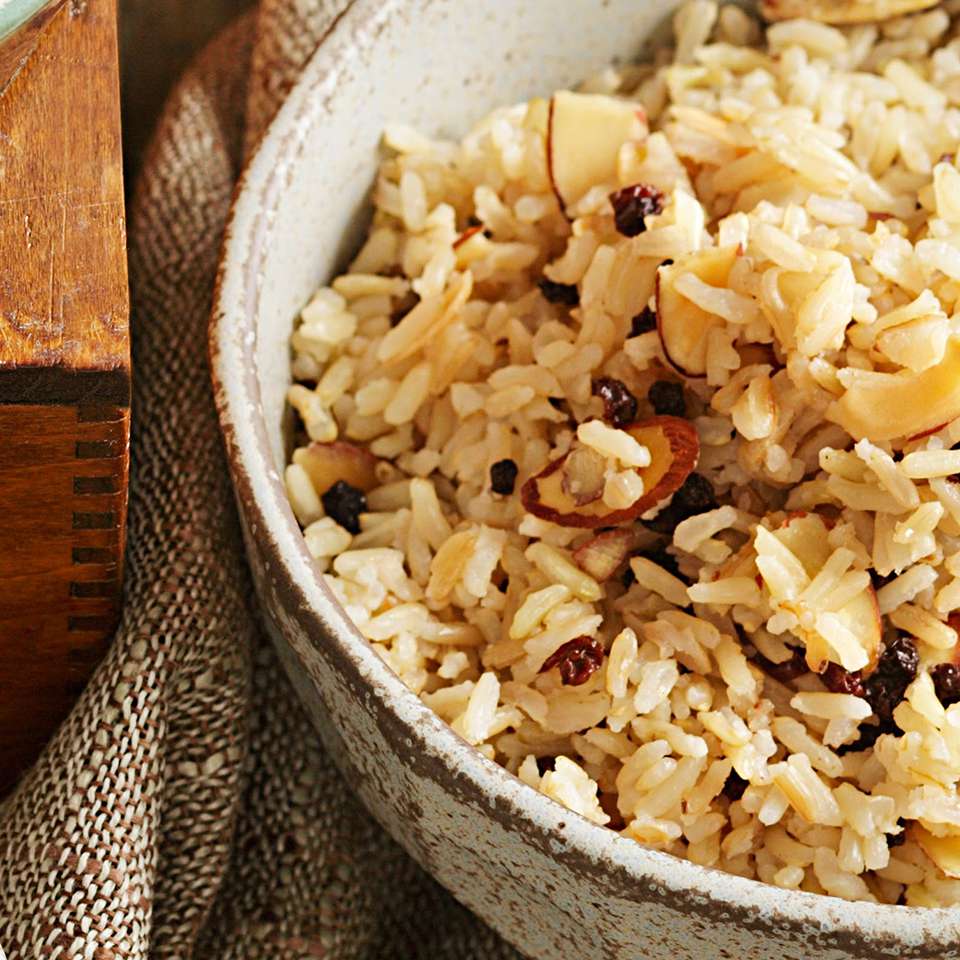The product recommendations in this post are recommendations by the writer and/or expert(s) interviewed and do not contain affiliate links. Meaning: If you use these links to buy something, we will not earn a commission.
High-protein breakfast foods often seem like a smart, nutritious choice to jumpstart our day. They’re hailed as morning heroes, offering sustained energy and keeping you full until your next meal. From protein shakes to egg white omelets, there are a variety of options that make it easy to add more protein to your mornings. But despite all their benefits, some high-protein breakfast foods can have hidden pitfalls that may compromise our weight loss efforts.
Many high-protein foods that seem healthy often hide ingredients like added sugars, unhealthy fats, or fillers that can undermine their benefits and stall weight loss progress. To stay on track, it’s essential to know what’s in your morning meal so your high-protein breakfasts can truly support your health goals.
To help cut through the confusion, we’ve analyzed ten high-protein breakfast products across ten categories—from frozen burritos to smoothies to granola bars—to highlight the ones to avoid if weight loss is your goal. For healthier alternatives, check out our guide to the 15 Best High-Protein Foods for Weight Loss.
Frozen Breakfast Burritos
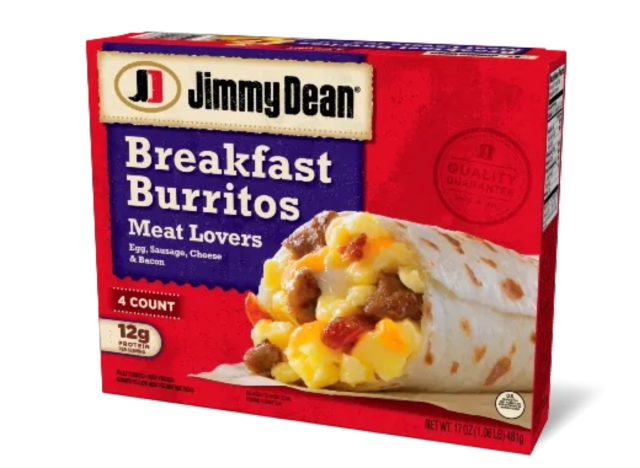
Nutrition (Per Jimmy Dean Meat Breakfast Burrito):
Calories: 340
Fat: 19 g (Saturated Fat: 7 g)
Sodium: 920 mg
Carbs: 30 g (Fiber: 1 g, Sugar: 2 g)
Protein: 12 g
The Jimmy Dean Meat Breakfast Burrito, although high in protein and low in sugar, contains a medley of not-so-healthy ingredients, including sausage and bacon, which are ultra-processed meats that pack in sodium and saturated fat. Just one burrito contains nearly half your daily value of saturated fats as well as a whopping 920 milligrams of sodium. Trusted organizations such as The American Heart Association recommend no more than 2,300 milligrams of sodium per day. Therefore, just one of these burritos contains 40% of your daily sodium limit.
Eat This Instead: Amy’s Gluten Free Tofu Scramble Breakfast Wrap
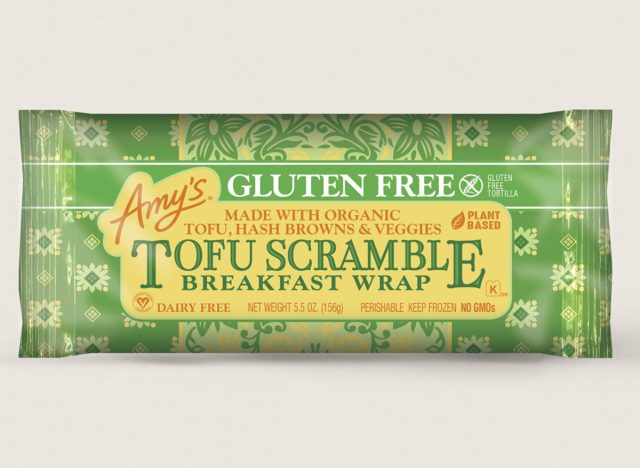

Nutrition (Per burrito):
Calories: 280
Fat: 13 g (Saturated Fat: 1.5 g)
Sodium: 420 mg
Carbs: 31 g (Fiber: 3 g, Sugar: 4 g)
Protein: 10 g
This burrito provides plant-based protein along with a boost of veggies. It is free of gluten, dairy, lactose, and tree nuts, vegan, and kosher.
Flavored Greek Yogurt
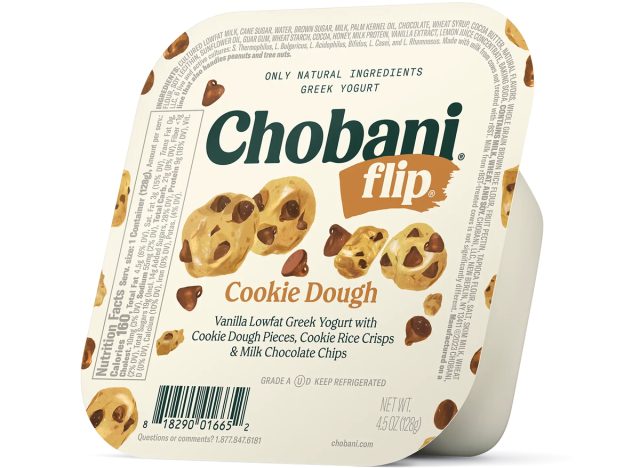

Nutrition (Per Chobani Flip Cookie Dough Yogurt):
Calories: 160
Fat: 4.5 g (Saturated Fat: 3 g)
Sodium: 55 mg
Carbs: 21 g (Fiber: <1 g, Sugar: 19 g)
Protein: 9 g
Although Greek Yogurt contains many benefits, including protein and live and active cultures, which can aid in a healthy gut microbiome, added sugars can have the exact opposite effect, creating an imbalance of healthy bacteria in the gut (dysbiosis). Just one cup of Chobani Flip Cookie Dough yogurt contains 14 grams of added sugar (28% DV). This is certainly not the way to start your day off on the right foot, so consider consuming unsweetened Greek yogurt instead, topped with fresh fruit as a natural way to satisfy your sweet tooth. If you are going for a flavored pre-sweetened yogurt, opt for one that has at most 6 grams of added sugar per serving.
Eat This Instead: Icelandic Provisions Vanilla Skyr
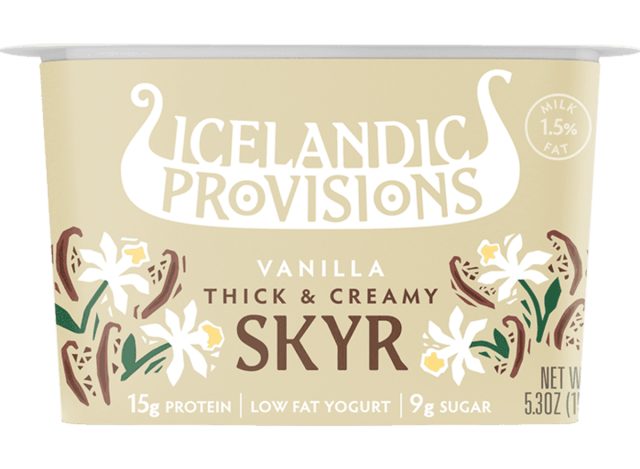

Nutrition (Per 5.3 ounce container):
Calories: 130
Fat: 2 g (Saturated Fat: 1 g)
Sodium: 50 mg
Carbs: 13 g (Fiber: 0 g, Sugar: 9 g)
Protein: 15 g
Yes, Icelandic Provisions Vanilla Skyr contains 9 grams of sugar, but only 6 come from added sugars (the rest comes from the naturally occurring sugar found in the dairy). It also provides an impressive amount of protein, and the flavor is utterly satisfying.
Breakfast Sausage
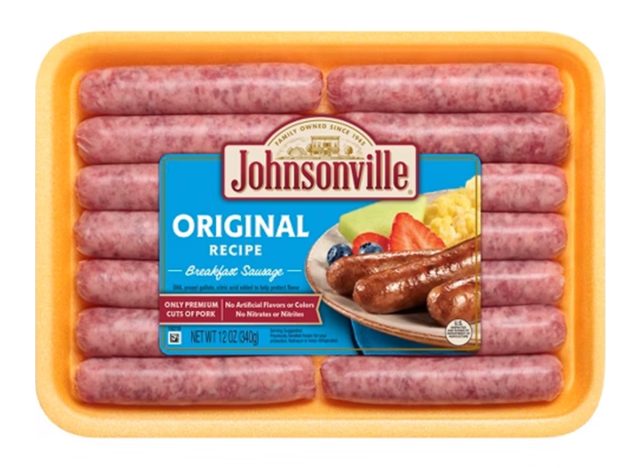

Nutrition (Per 3 Links, Johnsonville Original Recipe Breakfast Sausage):
Calories: 160
Fat: 13 g (Saturated Fat: 4.5 g)
Sodium: 460 mg
Carbs: 2 g (Fiber: 0 g, Sugar: 1 g)
Protein: 9 g
Sausage is an American breakfast staple, and with the rise of better-for-you brands, this high-sodium meat is slowly earning a better reputation. However, Johnsonville hasn’t quite caught on yet with their Original Recipe Breakfast Sausage. Three links of this sausage contain 4.5 grams of saturated fat, or about 35% of your daily value. Additionally, this sausage adds a whopping 460 milligrams of sodium to your diet. It’s also important to remember that processed meats should be enjoyed in moderation, as high intake can lead to a heightened risk of certain cancers.
Eat This Instead: Applegate Chicken & Sage Breakfast Sausage
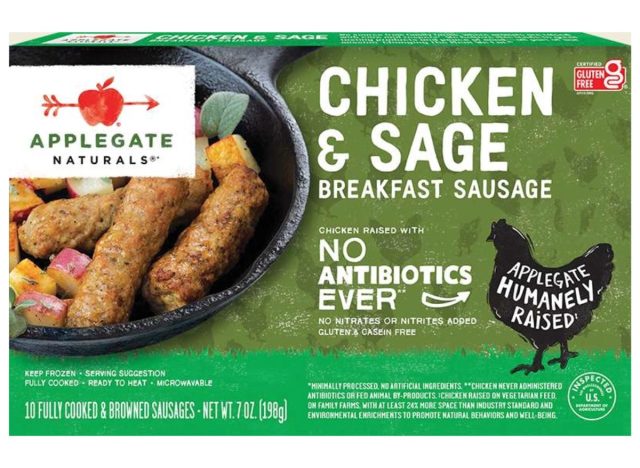

Nutrition (Per 3 Links, Applegate Chicken & Sage Breakfast Sausage):
Calories: 160
Fat: 13 g (Saturated Fat: 4.5 g)
Sodium: 460 mg
Carbs: 2 g (Fiber: 0 g, Sugar: 1 g)
Protein: 9 g
Applegate Chicken and Sage Breakfast Sausage provides only 2 grams of saturated fat per serving of 3 links, which is just 9% of the recommended daily limit. Plus, they are not made with synthetic nitrates or nitrites.
Bottled High-Protein Smoothies
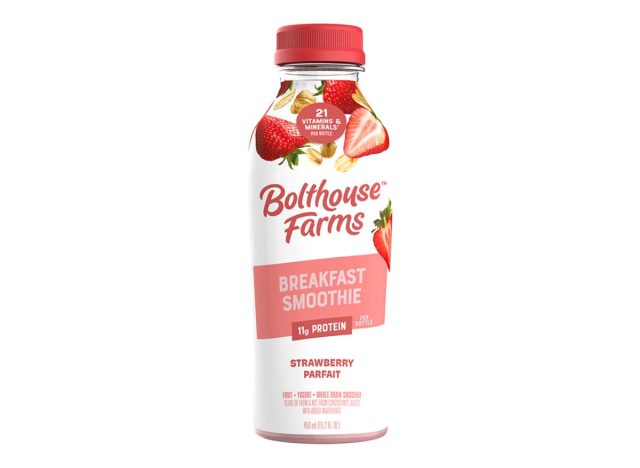

Nutrition (Per 15.2-ounce bottle, Bolthouse Farms Strawberry Parfait Breakfast Smoothie):
Calories: 350
Fat: 5 g (Saturated Fat: 2.5 g)
Sodium: 130 mg
Carbs: 67 g (Fiber: 12 g, Sugar: 44 g [Added Sugar: 27 g])
Protein: 11 g
Sure, smoothies can be a fantastic means for a source of protein. But high protein or not, smoothies like Bolthouse Farms Strawberry Parfait Breakfast Smoothie contain an unruly amount of added sugars—27 grams, to be exact. Don’t forget the American Heart Association’s recommended limit of 25 grams per day for the average, healthy female adult (AKA this one smoothie exceeds that recommendation). Excess sugar can lead to a slew of health concerns including, but certainly not limited to, obesity, cardiovascular disease, and the development of diabetes.
Eat This Instead: Too Good Peach Smoothie
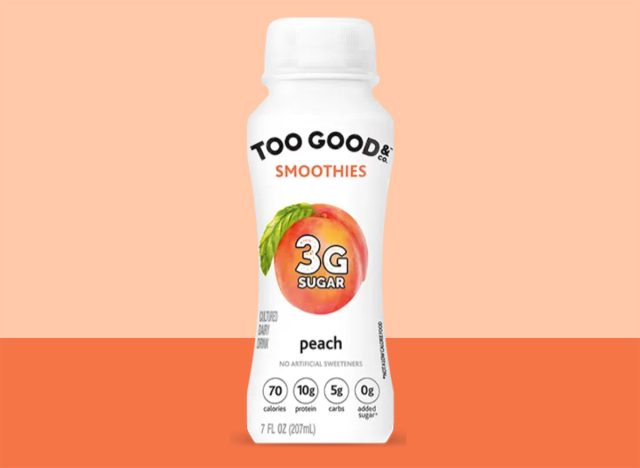

Nutrition (Per bottle):
Calories: 70
Fat: 2 g (Saturated Fat: 1 g)
Sodium: 90 mg
Carbs: 5 g (Fiber: 0 g, Sugar: 4 g)
Protein: 10 g
Too Good’s Peach Smoothie is relatively low in calories, contains only 4 grams of sugar, and a whopping 10 grams of protein. While this isn’t enough nutrition to sustain most people as a full breakfast, it is a viable addition for a high-protein repast.
Frozen Breakfast Sandwiches
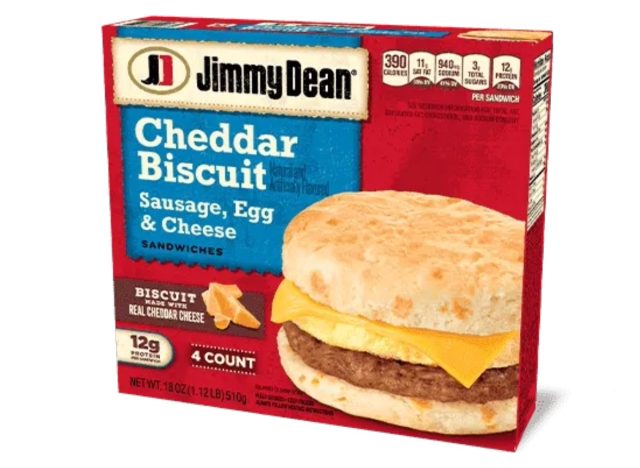

Nutrition (Per Jimmy Dean Cheddar Biscuit Frozen Breakfast Sandwich):
Calories: 390
Fat: 27 g (Saturated Fat: 11 g)
Sodium: 940 mg
Carbs: 25 g (Fiber: 2 g, Sugar: 3 g)
Protein: 12 g
As with our choice of the unhealthiest breakfast burrito, Jimmy Dean takes the cake across the frozen breakfast sandwich category. Just one Sausage, Egg, & Cheese Cheddar Biscuit sandwich contains a whopping 11 grams of saturated fat, or approximately 85% of your daily value. Additionally, these sandwiches contain 940 milligrams of sodium. Sure, they do provide a noteworthy quantity of protein, however, protein can be achieved in far healthier ways including through lean meats, eggs, and unsweetened yogurt.
Eat This Instead: Red’s Turkey Sausage Egg’Wich
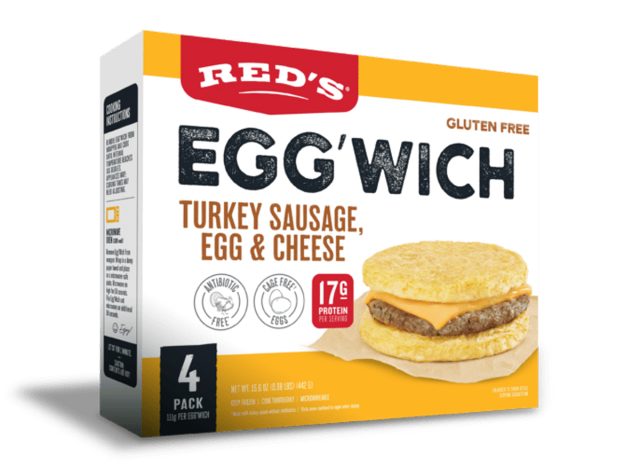

Nutrition (Per 1 Meat’wich):
Calories: 190
Fat: 12 g (Saturated Fat: 5 g)
Sodium: 590 mg
Carbs: 3 g (Fiber: 0 g, Sugar: 1 g)
Protein: 17 g
Red’s Turkey Sausage Egg’Wich sandwich is made with antibiotic-free sausage, cage-free eggs, and contains only 100 calories. This bread-free sandwich (they use two egg patties instead) can be paired with some fruit for a lighter and balanced breakfast.
Meal Replacement Bars
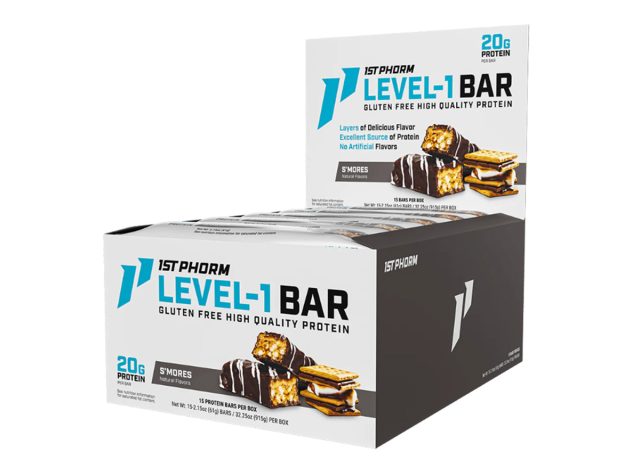

Nutrition (Per 1 Bar):
Calories: 270
Fat: 12 g (Saturated Fat: 9 g)
Sodium: 170 mg
Carbs: 20 g (Fiber: 0 g, Sugar: 2 g)
Protein: 21 g
Meal replacement bars have taken diet culture by storm, but not all are created equally. For example, 1st Phorm Level 1 S’Mores, although touting health at every corner, probably won’t aid in your weight loss goals. Just one bar contains 9 grams of saturated fat, or almost 70% of your daily limit. The majority of this saturated fat is derived from the palm kernel oil therein, which is a source of saturated fat. The American Heart Association noted that palm kernel oil is made up of more than 85% saturated fat. Although we like to see that this bar is low in sodium and added sugar, we also want to take a moment to show a startling lack of fiber, a nutrient that has been proven to help keep you full and satisfied.
Bottled Protein Shakes
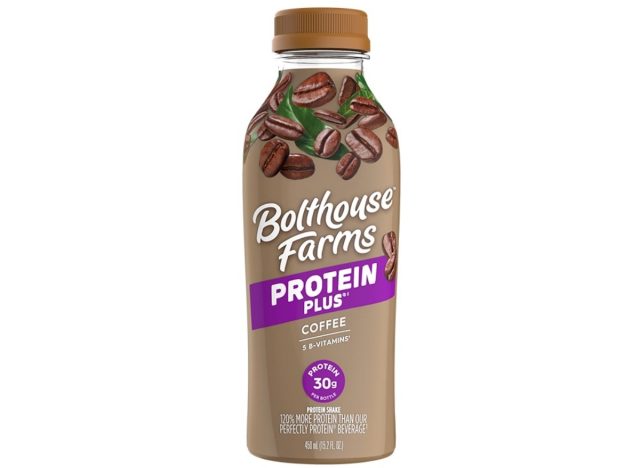

Nutrition (Per 1 Container, Bolthouse Farms Protein Plus Coffee):
Calories: 400
Fat: 7 g (Saturated Fat: 3.5 g)
Sodium: 230 mg
Carbs: 55 g (Fiber: 0 g, Sugar: 49 g)
Protein: 30 g
To say that the nutritional label of Bolthouse Farms Protein Plus Coffee is shocking is an understatement. Although this smoothie is meant to pump you full of satiety-inducing protein while offering a caffeine boost, this smoothie contains not only 400 calories per bottle…but 36 grams of added sugar. This sugar count is 44% above the daily recommended sugar levels as set by the American Heart Association. Therefore, if weight management (or simply overall health) is your goal, consider giving this smoothie a wide berth.
Eat This Instead: OWYN Complete Nutrition Shake
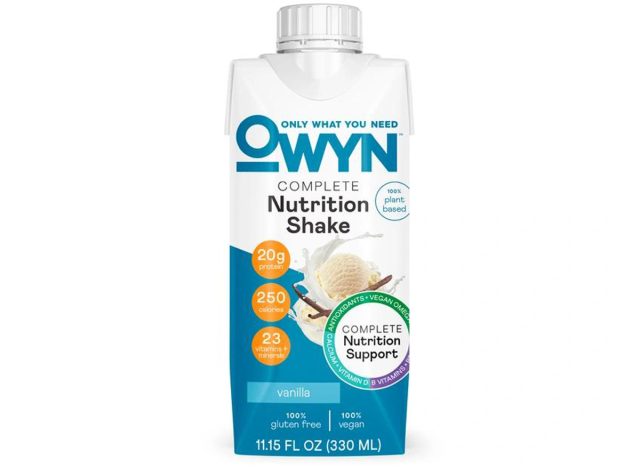

Nutrition (Per 11.15 fl. oz carton):
Calories: 250
Fat: 8 g (Saturated Fat: 1 g)
Sodium: 250 mg
Carbs: 30 g (Fiber: 3 g, Sugar: 4 g)
Protein: 20 g
Made from pea protein, organic flaxseed oil, and organic pumpkin seed protein as protein sources, OWYN Complete Nutrition Shake provides 20 grams of protein with only 4 grams of sugar (thanks to being sweetened with only organic cane sugar and monk fruit extract).
These shakes are 100% vegan-friendly, and they deliver 20-25% of your Daily Value for over 25 essential nutrients, including calcium, vitamin D, folate, and B vitamins.
Protein Granola
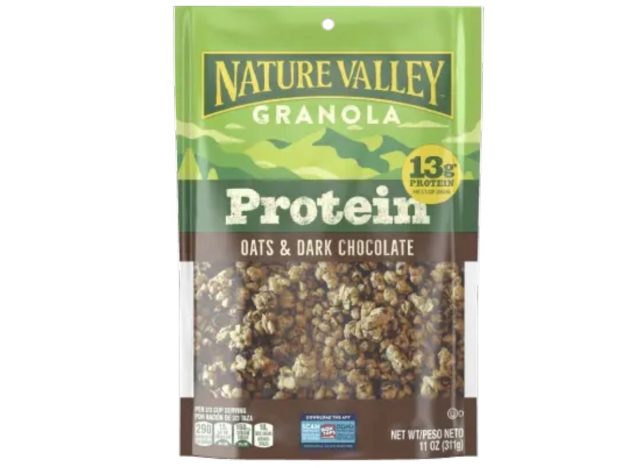

Nutrition (Per ⅔ Cup, Nature Valley Oats & Dark Chocolate Protein Granola):
Calories: 280
Fat: 8 g (Saturated Fat: 1.5 g)
Sodium: 160 mg
Carbs: 41 g (Fiber: 4 g, Sugar: 18 g)
Protein: 13 g
Although Nature Valley offers a slew of heart-healthy granola options, their Oats & Dark Chocolate Protein Granola simply doesn’t make the cut. Yes, this granola is low in saturated fat and sodium and contains 13 grams of protein, but we simply can’t ignore the fact that each ⅔ cup serving contains 17 grams of added sugar (34% DV). Granola can be a fiber and protein powerhouse without added sugars. If you’re craving something sweet, we recommend mixing fresh fruit, raisins, or even dates into your morning yogurt or trail mix.
Eat This Instead: Struesli Organic Savory + Seed Granola Redefined
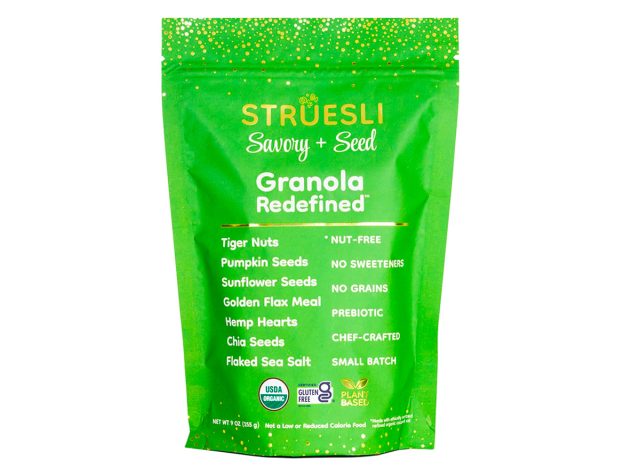

Nutrition (Per ¼ cup):
Calories: 130
Fat: 10 g (Saturated Fat: 3 g)
Sodium: 130 mg
Carbs: 6 g (Fiber: 2 g, Sugar: 1 g)
Protein: 3 g
This grain-free granola is free from added sweeteners, it is nut-free, and it is certified gluten-free. The measly 1 gram of sugar found in this granola makes it an ideal addition to your dishes to add a boost of fiber and protein. Add some extra chia seeds and flax seeds to the mix to up the protein in this option.
Energy Bars
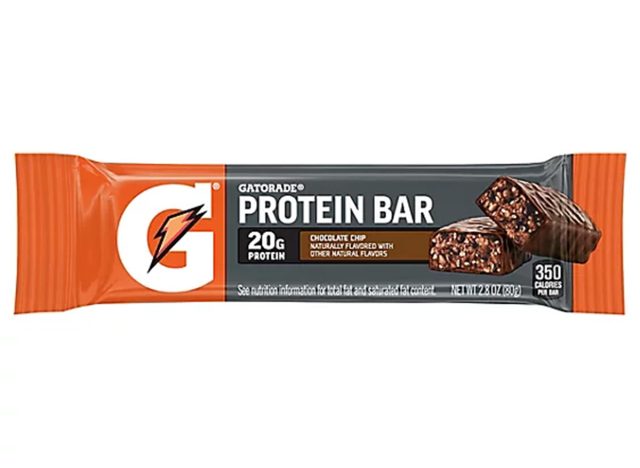

Nutrition (Per Gatorade Recover Chocolate Chip Protein Bar):
Calories: 360
Fat: 13 g (Saturated Fat: 10 g)
Sodium: 150 mg
Carbs: 41 g (Fiber: 2 g, Sugar: 29 g)
Protein: 20 g
Gatorade, a household name in sports hydration, has now expanded its company to include everything from protein bars to tablets to powders. However, not all of their products are what we would tout as “better-for-you,” and their Recover Chocolate Chip Protein Bar is no different. Each bar contains 10 grams of saturated fat and 28 grams of added sugar, an amount that far surpasses the daily threshold of 25 grams. For strenuous athletes, this bar may be a good fit. But for most of us, this one has way too much saturated fat and sugar!
Eat This Instead: MOSH Cookie Dough Crunch
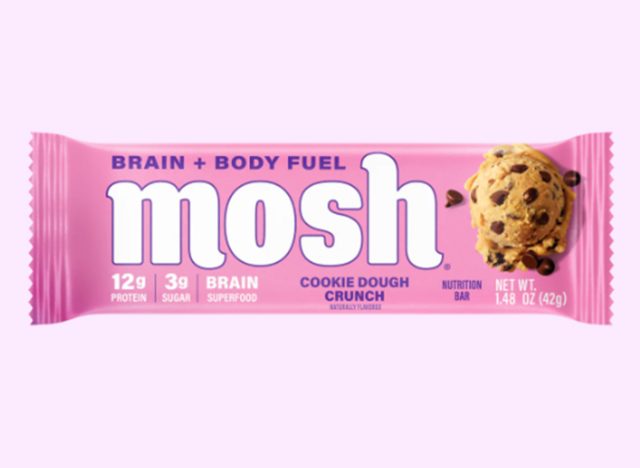

Nutrition (Per bar):
Calories: 180
Fat: 10 g (Saturated Fat: 1.5 g)
Sodium: 100 mg
Carbs: 15 g (Fiber: 7 g, Sugar: 3 g)
Protein: 12 g
MOSH bars are made with ingredients that support cognitive health, like Cognizin, which is an added bonus when eating a better-for-you bar that actually tastes good! Each bar only has 3 grams of added sugar, along with 7 grams of satiating fiber. Plus, they fuel your body (and brain) with Lion’s Mane, Vitamin D, Vitamin B12, and other brain health-supporting nutrients.
Protein Cereal
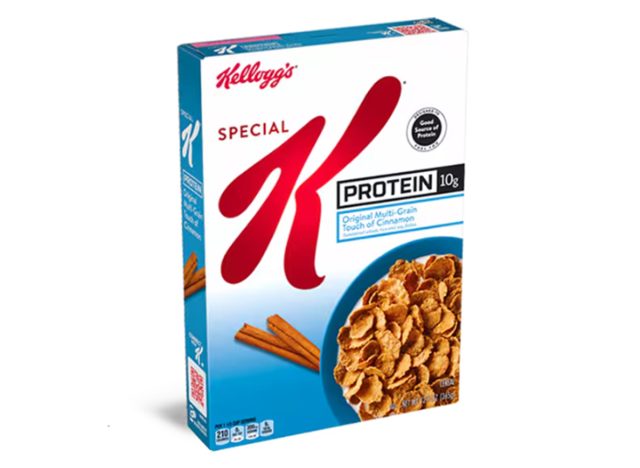

Nutrition (Per 1 ⅓ cup, Kellogg’s Special K Protein Cereal):
Calories: 210
Fat: 1 g (Saturated Fat: 0 g)
Sodium: 300 mg
Carbs: 44 g (Fiber: 5 g, Sugar: 9 g)
Protein: 10 g
We want to bring special attention to Kellogg’s Special K Protein Cereal as, especially in the early 2000s, the “Special K Diet” was all the rage. To promote weight loss, Kellogg’s Special K cereal was meant to be consumed with low-fat milk, with Kellogg’s snack supplements added in. However, this crash diet was discontinued – and with good reason. Although Kellogg’s Special K protein cereal contains 10 grams of protein and 5 grams of fiber, this cereal also contains 9 grams of added sugars. With so many better-for-you brands doing without added sugar, we don’t see why this “healthy” brand continues to pump its cereal full.
Eat This Instead: Seven Sundays Rise and Shine Keto Nut Granola
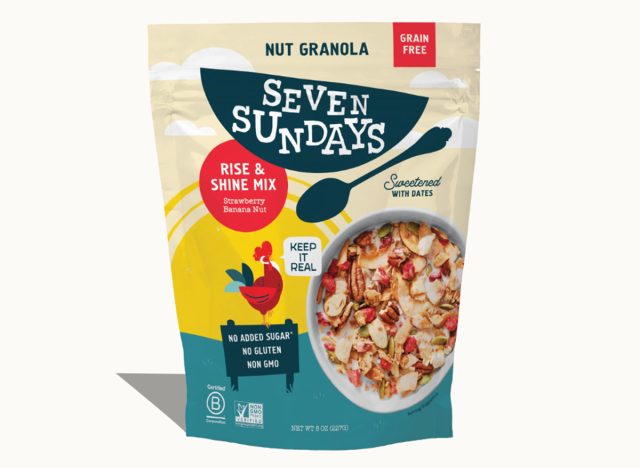

PER ⅓ CUP SERVING:
170 calories
14 g fat (4.5 g saturated fat)
5 mg sodium
9 g carbs (4 g fiber, 4 g sugar)
5 g protein
Seven Sundays Keto Nut Granola only provides 5 grams of protein, but once you add your milk (assuming your choice contains protein too), you have an impressive protein-packed option. This cereal has no added sugar, 4 grams of fiber, and just 5 grams of net carbs per serving. While this option is technically a granola, it can be enjoyed like a classic cereal.


